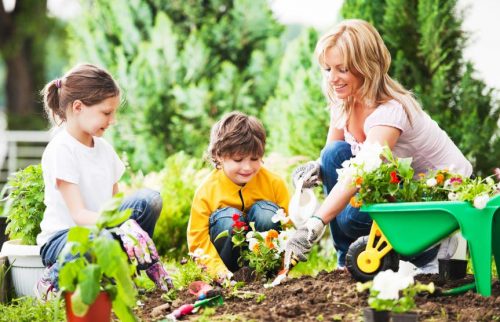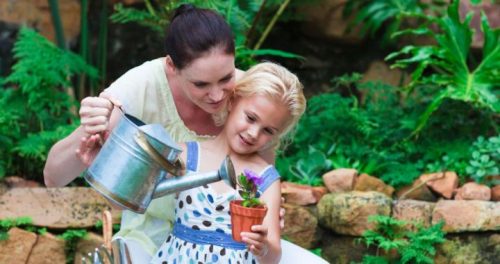
Everyone has a secret spot on their residential property that’s equivalent to Batman’s cave. You know, the place where you retreat when there’s tension in the air, and you won’t want to drop statements you’ll later regret. Sounds familiar?
Anyway, for me, that is my garden. All the stress I harbored in the last few days tends to go away each time I cultivate the soil or re-pot a plant. When I mentioned that to a friend who happens to specialize in child development, she said that gardening might be advantageous for kids as well. Hence, I wasted no time to share my hobby with my brood.
Here are the benefits I noticed after letting the children garden with me.
It Helps Them Like Vegetables
Regardless of how early I introduced greens and fruits to my kids, I had a hard time encouraging them to eat fresh produces, especially when it comes to the former variety. It must be due to their color or texture, but it truly came to a point when they could still tell I added vegetable bits in the homemade burgers.
Things only got better once they frequented the garden. Aside from flowering plants, I made sure they’d get to work with lettuce, pepper, eggplants, etc. so that they’d somehow become familiar with the veggies. To my surprise, the children didn’t hesitate to sample every produce they harvested.
As explained by Dr. Helen Delichatsios, an internist at Harvard-affiliated Massachusetts General Hospital, “Backyard gardening can inspire you to take an interest in the origins of your food and make better choices about what you put on your plate.” Now, they don’t mind having vegetables regularly on the dining table, which is a significant development.
It Boosts Intelligence
Studying the growth of plants at school merely kids that it all begins with a seed, and then stem sprouts after a few days, and leaves and flowers come afterward. However, it’s mostly theoretical; that’s why they perhaps cannot see the importance of taking care of the environment at a young age.
Nevertheless, the practical experience that they can’t get from school is what you can give them through gardening. The children can touch the earth with their bare hands at home. They can also be as close as possible to examine the patterns on the leaves or the fine details of the plants. Due to that, both their senses and scientific knowledge can improve.
“As children and teenagers are often focused on electronics and social media, gardening can be a great way for them to engage in a positive prosocial activity. When children have engaged in pleasant activities, they are better able to handle other stressors and are better able to regulate their emotions” Deborah Zlotnik, PhD, a psychologist with Children’s National, points out.

It Makes Them Responsible
Do you want to teach the value of accountability to your child? You may start by giving them potted plants to take care of right now.
That’s what I did with my children from the moment they turned three – the age when they assume they’re old enough to handle tasks for big boys or girls. I specifically told the kiddos to embed the seeds in the soil and water the containers every day, and they were more than ecstatic to oblige.
Moreover, maintaining a family garden can also be special. “A family garden gives us an opportunity to put our phones down and engage with each other, face to face,” said Barbara Tarkin, PhD, a licensed psychologist in Bloomfield.
A probable reason I’m seeing is that they feel a connection with the plants as they exerted much effort in putting them in pots. So, the children aim to make sure the living things won’t die. It’s like hitting two birds with a single stone on the parents’ part because you get to teach responsibility to your babies and have more flora to add to the garden at once.
